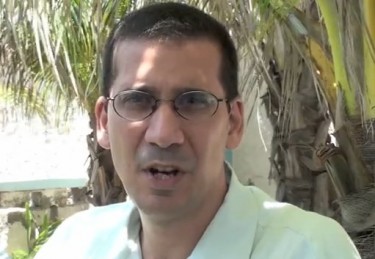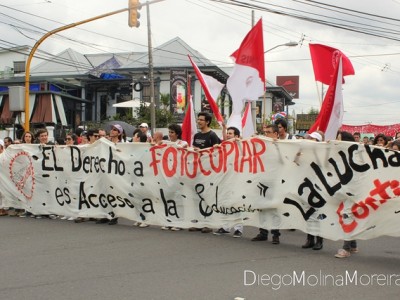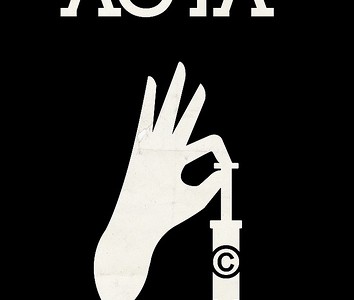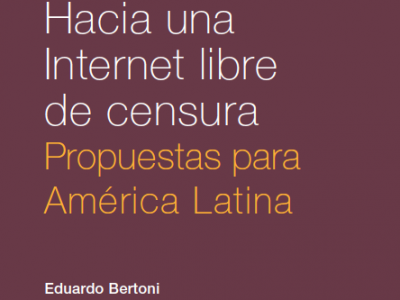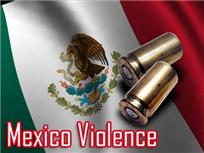Stories about Mexico
Mexico: Lethal Threats for Citizens Reporting on Drug Crimes
In Mexico last month, a drug cartel offered a bounty of MX$600,000 for information on the identity and location of a person who has been using social media to report on drug violence in the northern state of Tamaulipas. The drug war has had a stark, chilling effect on Mexico's press, with sometimes lethal violence against journalists forcing news outlets to censor their coverage of crime. But this and other recent incidents have shown that both professional and citizen journalists alike are now facing these threats.
Surveillance Camp III: On the Expanding Online Security Market in Latin America
Recently, we wrote about how companies throughout the world increasingly face political and legal pressures to assist governments in their surveillance efforts and the many ways in which the private sector is increasingly playing a role in state surveillance. In December 2012, EFF's Surveillance and Human Rights Camp in Brazil built upon this discussion and focused a spotlight on the privatization of public security, states funding surveillance initiatives, and the lack of quantifiable research on security markets in Latin America. Here is what we learned.
Latin America and the Caribbean Netizen Report: Detention Edition
This month, arrests of Internet users in Latin America and the Caribbean appear to have increased, with bloggers and activists in Ecuador, Colombia, and Cuba detained for their activities online. In this Netizen Report for Latin America and the Caribbean, we review some of these cases.
Latin America and the Caribbean Netizen Report: Cybercrime Edition
In the last 10 years, various countries in the region have put forward legislation that attempts to combat computer crimes. As a result of these initiatives, the state collects the personal information of Internet users, running the risk of violating their right to privacy.
Latin America and the Caribbean Netizen Report: Free Trade Edition
In this edition, we focus on recent free trade agreements and the challenges they pose in the digital age. To fulfill the requirements of a free trade agreement with the United States, the Congress of Panama approved a law last week that will impose severe penalties for violating copyright and will make it almost impossible for the accused to be able to present their cases in court.
Latin America and the Caribbean Netizen Report: First Edition
This first Latin America and the Caribbean Netizen Report focuses on legislation that affects the fundamental rights of Internet users in the region. In the last two months, the governments of various countries -Costa Rica, Peru, and Brazil, among others- have considered bills that affect freedom of speech, access to information, anonymity, and privacy online.
Mexico: Congress Resolves to Reject ACTA
On July 18, 2012, both the Senate and House of Representatives in Mexico passed resolutions calling for the country's new President, Enrique Peña Nieto, to nullify Mexico's signature on the ACTA treaty. Mexico's Ambassador to Japan, Claude Heller, signed the treaty a week prior, despite strong rejections of its terms by Mexico's Senate and the country's telecommunications commission.
Mexico: The Government Signed ACTA While Mexicans Were Asleep
The Mexican government signed its adhesion to ACTA (Anti-Counterfeiting Trade Agreement) on Wednesday, July 11th. 2012 in Japan while it was the middle of the night in Mexico. Netizens showed their outrage complaining that the federal government acted against the will of the people and of the Senate.
Mexico Adopts Alarming Surveillance Legislation
The Mexican legislature today adopted a surveillance legislation that will grant the police warrantless access to real time user location data. The bill was adopted almost unanimously with 315 votes in favor, 6 against, and 7 abstentions. It has been sent to the President for his approval. There is significant...
New Book Proposes Open Internet Policies for Latin America
Last week, the Center for the Study of Free Expression (CELE) at Argentina’s University of Palermo released a book addressing some of the most pressing challenges facing Latin American digital rights advocates today, with contributions by leading policy experts from Brazil, Chile, Colombia, Puerto Rico, and the U.S.
Internet Blackout Day Fires Up Digital Rights Activism Around the World
Yesterday was a defining moment for the global Internet community. The effects of the massive online blackout in protest of U.S. Internet blacklist legislation, SOPA and PIPA, were felt around the world as countless websites joined in a global action against over-broad and poorly drafted copyright laws.
Mexico Hosts Global Conference on Privacy and Free Speech
The Public Voice coalition will be hosting a global conference in Mexico City on October 31, 2011 and you are invited to take part in the conversation and interact with the panelists.
Mexico: Online Activists Targeted
After being reported missing on the 23 September 2011 - after leaving the office Elizabeth Macias Castro, Chief Editor for the daily newspaper “Primera Hora”, was found dead in a public plaza on 24 September 2011 near Nuevo Laredo, Tamaulipa. A message was attached to Elizabeth’s body accusing her of collaborating with the army and marine intelligence services by posting information online that related to organized crime activities.
Two mexican citizens face jail over “terrorism” via social networks
Marucho Bravo Pagola (@maruchibravo) and Gilberto Martínez Vera (@gillus_22) are two Mexican citizens arrested under charges of “terrorism and sabotage” in the State of Veracruz in México, after being held responsible of spreading rumours of a narco related attack trough Twitter and Facebook. Daniel Hernández in Los Angeles Times writes:...
Chiapas: Warrantless arrest of Free Software activist
Chiapas was a pioneer in the use of digital activism by grassroots social movements. It started in 1994 with the Zapatista movement and it keep growing to become a tool of empowerment beyond the rebels. It provides alternative digital media - newspapers and radio - it helps Chiapanecos develop their own software - they even have hackerspaces in autonomous communities such as Oventik and Tzajala - and their digital communities are growing as you can see in the Chiapatuit, Fedora and Free Software community.



